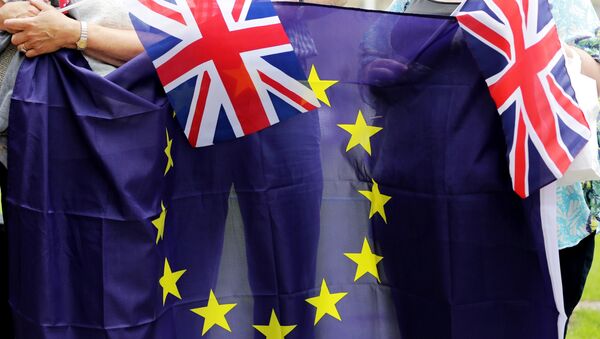"A sad day for Europe," German Foreign Minister Frank-Walter Steinmeier said in social media, commenting on the results of last week's national referendum in Britain, which Strand recalled okayed the UK leaving the EU.
With Europe still waiting for German Chancellor Angela Merkel's further comments on the matter, members of the eastern enlargement of the EU have shown mixed feelings, Strand said.
FM #Steinmeier: The early morning news from #GreatBritain are truly sobering. It looks like a sad day for #Europe+the #UnitedKingdom. #UK 🇪🇺
— GermanForeignOffice (@GermanyDiplo) 24 июня 2016 г.
On the one hand, they are now going to use Brexit to struggle for a less bureaucratic EU, which could focus more on the specifics of separate EU members. On the other hand, they have lost their beacon, the UK, which fought for European values in the organization, according to Strand.

He quoted Hungarian Prime Minister Viktor Orban as saying that Brussels should learn the main lesson of Brexit by listening to the voice of the people. However, he also emphasized that Hungary needs a strong European Union.
"But the EU is strong only when it can provide answers to such important questions as migration, something that will make Europe stronger, not weaker. The EU has failed to answer such questions," Orban said.
He was echoed by Polish Foreign Minister Witold Waszczykowski, who also called for a stronger EU, describing the British referendum as a serious dilemma for bureaucrats in Brussels.
"We will try to use this situation so that the European politicians can understand why all this has happened. It has occurred because the doctrine, established some time ago, lost its popularity," Waszczykowski said.
Last Thursday, a nationwide referendum was held in Britain in which 51.9 percent of the voters said that they were in favor of Brexit. The United Kingdom still needs to formally notify the EU of its intention to leave the bloc. After that, it has two years to negotiate the terms of its divorce.




